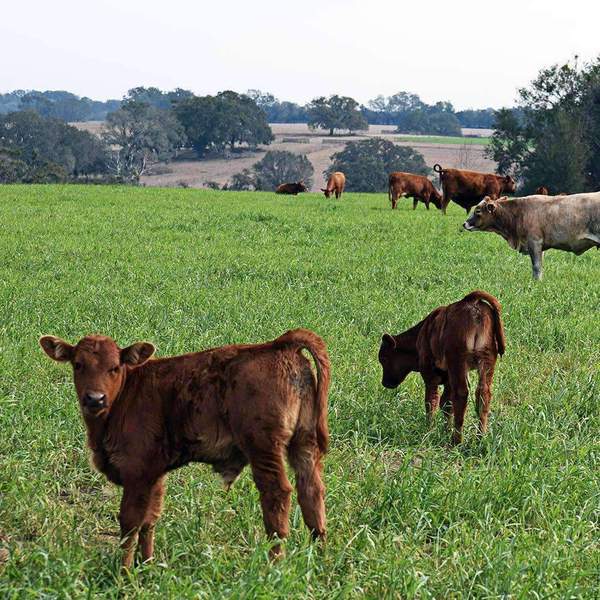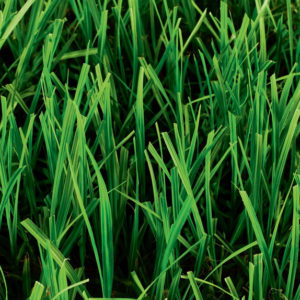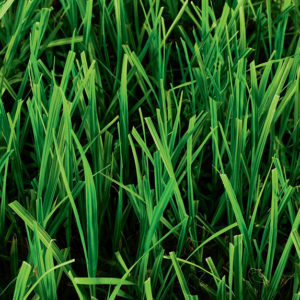BAHIAGRASS, TIFTON 9 CERTIFIED (40 POUNDS)
Tifton 9 Bahia Grass (40 Pounfds)
- Better drought tolerance
- Good frost resistance
- 30% to 40% more forage yearly
- More rapid stand establishment
- Commonly used for hay production
Description
Planting Instructions:
Broadcast 20-40 lbs. per acre, or 10-20 lbs. for drill seeding (20 lbs. takes 12 – 24 months to fully sod the pasture). The more seed applied to the lawn or pasture on the first planting the faster the lawn or pasture will fully establish a sod or grass base and prevent future overseeding to fill in bare spots.
Overseeding rates depend on the amount of established or existing grass in the pasture area. Common applications for overseeding are 10 – 25 lbs. per acre.
Land preparation and planting:
An ideal site on which to plant Tifton 9 would be new ground, or areas where Bahiagrass has never been planted. Next would be fields that have been in row crops, or have been cultivated for several years. These sites should have almost no Bahiagrass plants and relatively low populations of Bahiagrass seed in the soil. This should result in a fairly pure stand of Tifton 9 plants. Old pastures that need to be renovated are a great option for Tifton 9. These may have been planted to Bahiagrass, or have been infested with Bahiagrass through movement of seed by animals from one area to another. The end result is that something needs to be done to eliminate the Bahiagrass plants present, and also reduce the population of seed in the soil. In order to convert an old Bahiagrass pasture to Tifton 9, the following land preparation and planting procedures are suggested:
Plow with a moldboard plow. This will bury much of the surface weed seed too deep to germinate.
Plant an annual forage crop, such as Pearl Millet or Sorghum-Sudangrass, during the warm season, and a small Grain, Ryegrass, or Clover, during the cool season. The growing of annual crops with associated cultivation helps to eliminate any remaining Bahiagrass plants and reduces the population of Bahiagrass seed near the soil surface.
Bahiagrass can be planted from February through July in most areas of Florida. Plantings made from late March through May can be lost due to drought, especially in South Central Florida. Thus it may be wise to avoid planting during this time period. Plant on a clean-tilled seedbed that has been prepared by using a heavy cutting disc, or other suitable tillage tool, plus a finishing disc that leaves a smooth surface free of trash.
If possible, use a cultipacker-type seeder or some other precision seeder in order to place all of the seed at a uniform depth. Seed should be planted at 1/2 to 3/4 inch deep.
Fertilizing for establishment:
The soil should be limed to a pH of 5.0 to 5.5 before planting. On land that has been cropped in the past, it may be more efficient to apply the major fertilizer elements after planting. Apply fertilizer when the Bahiagrass seedlings have emerged from the soil. Apply 30 to 40 lbs. of nitrogen per acre, along with phosphorus and potash (according to a soil test recommendation). When the Bahiagrass plants are large enough to start spreading, apply an additional 40 to 50 lbs. of nitrogen.
Weed control during establishment:
No herbicide is available for use at planting and while plants are young and immature. Therefore be sure to start with a clean-tilled seedbed. Use mowing to control broadleaf weeds. No control is available for grassy weeds, such as seedling Bermudagrass, Crabgrass, and the “old” Bahiagrass seed that might germinate. Once the grass is well-established, the phenoxy-type herbicides, such as 2, 4-D and Banvel?can be used to control broadleaf weeds.
Tifton 9 Bahia Grass forms firm and rapid pasture, which is acclaimed for use with horses and other animals. It has proven in tests to produce between 30 to 40 percent more forage per year. Tifton 9 Bahia Grass is considered a very durable pasture grass for horses. Tifton 9 Bahia grows faster than regular Pensacola Bahia Grass, provides more drought tolerance, and better frost resistance.
Product Detail
- Better drought tolerance
- Good frost resistance
- 30% to 40% more forage yearly
- More rapid stand establishment
- Commonly used for hay production
Product Information
Tifton 9 is an improved Pensacola Bahiagrass variety that was bred and developed by Dr. Glen Burton (Agricultural Research Service, U.S.D.A.) and the Georgia Coastal Plain Experiment Station. Tifton 9, as well as other Pensacola types, have more frost and cold tolerance than Argentine or Paraguay 22. Thus, it may produce more growth at the beginning and end of the growing season. Besides producing more forage, Tifton 9 is much more vigorous in the seedling stage, has longer leaves, and is equal to Pensacola in digestibility. The increased seedling vigor should provide for more rapid stand establishment, and increased ability to compete with weeds. Grazing information is somewhat limited, but in one study steers made good weight gains on Tifton 9. This indicates that it is palatable and acceptable to cattle. Some improved forage varieties lose vigor with advancing generations.
Tifton 9 was bred to continue its improved characteristics through advanced generations. If seeds are harvested from non-certified fields where Tifton 9 has been allowed to crossbreed with old-type Pensacola plants, improvements may diminish. Therefore, use of certified seed of Tifton 9 will ensure that the grower is getting maximum use of the improvements. Tifton 9 should be adapted to, and can grow in, the same geographic areas and on the same soil types where Pensacola Bahiagrass is now grown.
Additional information
| Weight | 40 lbs |
|---|



